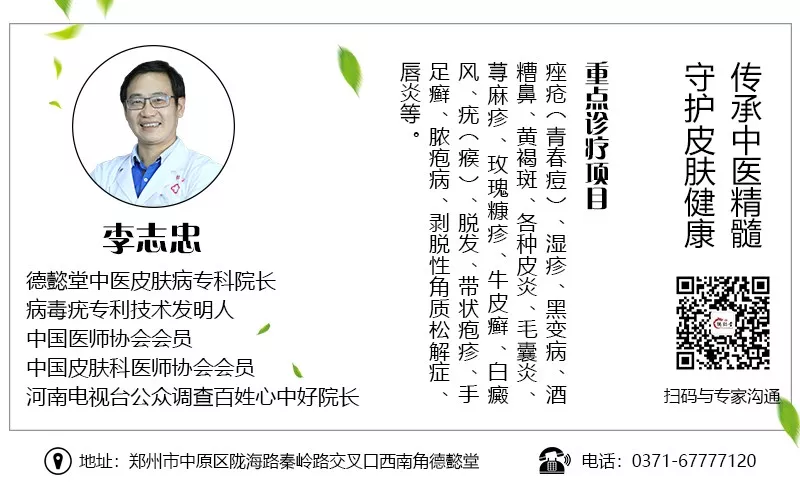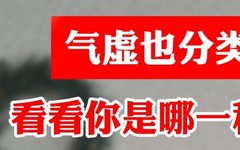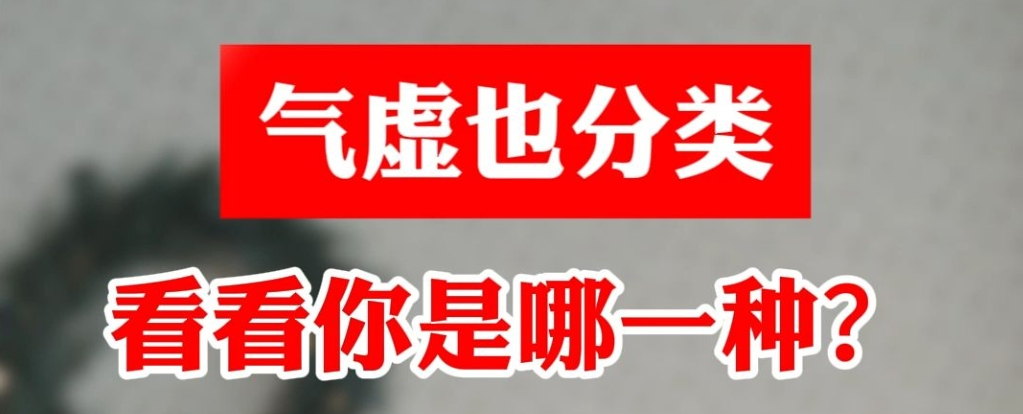
1. Heart Qi Deficiency: The Heart is the “Supreme Organ” of the Five Zang and Six Fu.
Common Symptoms of Heart Qi Deficiency:
Heart Qi deficiency leads to insufficient blood circulation, often causing irregular heartbeats, chest tightness, shortness of breath, and palpitations. Symptoms are particularly pronounced with increased physical activity, such as climbing stairs, brisk walking, or running.
Additionally, the heart governs blood vessels and houses the spirit. Insufficient heart Qi may also result in pale complexion, difficulty falling asleep, poor sleep quality, fatigue, and a tendency to speak less.
In such cases, the TCM patent medicine Sheng Mai Yin (生脉饮) can be used for adjustment. Sheng Mai Yin has three variations: Dang Shen (党参), Ren Shen (人参), and Hong Shen (红参), which can be selected based on individual conditions.
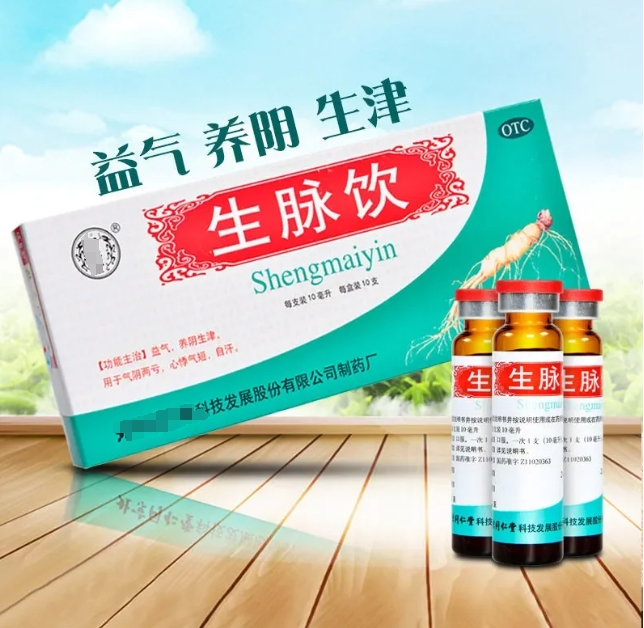
1. Sheng Mai Yin (Hong Shen Variation): Hong Shen is the dried root and rhizome of ginseng after steaming. It has a sweet and rich flavor, is slightly warm in nature, and is known for its ability to greatly replenish vital Qi, stabilize the pulse, and nourish blood, particularly excelling in warming and tonifying. Therefore, Sheng Mai Yin (Hong Shen Variation) is more suitable for those who are cold-sensitive, have cold hands and feet, and prefer warmth while also having heart Qi deficiency.
2. Sheng Mai Yin (Ren Shen Variation): Ren Shen has a sweet and slightly bitter taste, and is slightly warm in nature. It has strong tonifying properties, can greatly replenish vital Qi, and stabilize the pulse, making it commonly used for critical conditions of Qi deficiency and impending collapse. Thus, Sheng Mai Yin (Ren Shen Variation) is more suitable for those with severe Qi deficiency, pronounced fatigue, and palpitations, who typically do not experience excessive heat.
3. Sheng Mai Yin (Dang Shen Variation): Dang Shen is sweet and neutral, entering the spleen and stomach, and is mild in effect. It is inexpensive and can tonify the spleen, benefit the lungs, and nourish Qi and blood without causing dryness or greasiness. Therefore, Sheng Mai Yin (Dang Shen Variation) is more suitable for those who easily develop heat symptoms from tonics, such as headaches, dizziness, or nosebleeds.
2. Lung Qi Deficiency: As stated in the Su Wen: Treatise on the Six Qi and Zang Visceral Organs, “The lung is the source of Qi.”
Common Symptoms of Lung Qi Deficiency:
The lungs govern Qi and respiration; if lung Qi is insufficient, symptoms such as low energy, shortness of breath, and a weak voice may occur.
Moreover, as “the lungs open to the nose,” many individuals with lung Qi deficiency may experience nasal congestion, runny nose, and sneezing during seasonal transitions, particularly in winter-spring or summer-autumn.
Lung Qi plays a protective role in the body; if lung Qi is not disseminated and defensive Qi is weak, it cannot resist external pathogens, leading to poor immunity, frequent colds, spontaneous sweating, or even cough, phlegm production, and issues like bronchitis or pneumonia.
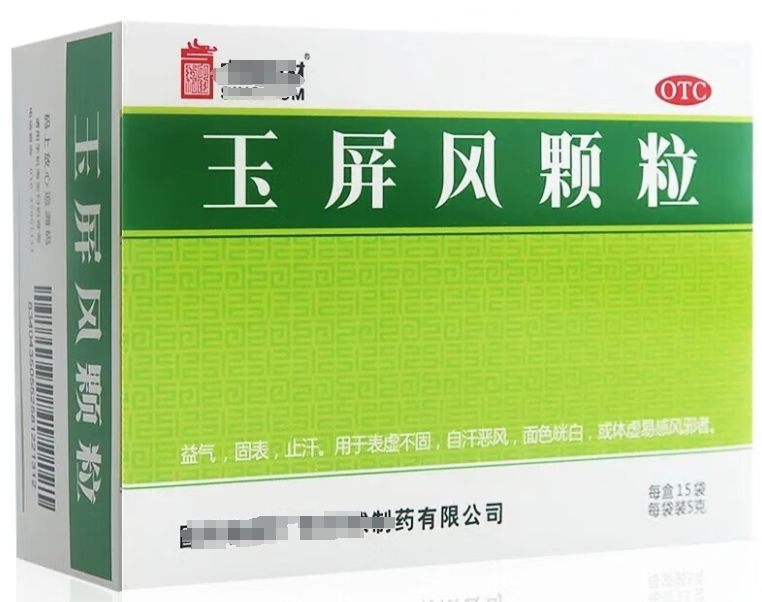
The most commonly used TCM patent medicine for tonifying lung Qi is Yu Ping Feng Granules (玉屏风颗粒), which can benefit Qi, stabilize the exterior, and stop sweating. It is particularly effective for spontaneous sweating, physical weakness, and recurrent respiratory infections.
From its composition: Huang Qi (黄芪) is sweet and warm, can tonify spleen and lung Qi internally, and stabilize the exterior to stop sweating; Bai Zhu (白术) strengthens the spleen and benefits Qi, assisting Huang Qi in enhancing the function of tonifying Qi and stabilizing the exterior; Fang Feng (防风) disperses wind pathogens, ensuring the formula stabilizes the exterior without retaining pathogens.
3. Spleen Qi Deficiency: The spleen governs transformation and transportation, being the source of Qi and blood production.
Common Symptoms of Spleen Qi Deficiency:
Weak spleen Qi leads to impaired transformation and transportation, resulting in symptoms such as reduced appetite, poor digestion, and abdominal distension.
Furthermore, spleen deficiency can lead to insufficient Qi and blood production, causing low energy, fatigue, and a tendency to speak less.
When spleen deficiency leads to dampness retention, it may result in loose stools or diarrhea.
For these symptoms, Shen Ling Bai Zhu Wan (参苓白术丸) can be taken to tonify the spleen and benefit Qi. This formula is based on the Four Gentlemen Decoction (四君子汤) with added ingredients, capable of replenishing the deficiency of the middle burner, assisting spleen Qi transformation, draining dampness, and restoring the spleen and stomach’s ability to receive and transform.
4. Kidney Qi Deficiency: The kidneys are the foundation of congenital essence.
Common Symptoms of Kidney Qi Deficiency:
Kidney Qi is Yang in nature; individuals with kidney Qi deficiency often feel cold, have cold hands and feet, and experience lower back coldness.
Additionally, weakened kidney Qi leads to reduced retention ability, resulting in frequent urination, especially at night.
“The kidneys are associated with fear”; individuals with kidney Qi deficiency may be timid and easily startled.
Those with significant kidney Qi deficiency may also experience symptoms such as lower back and knee weakness, fatigue, mental exhaustion, dizziness, tinnitus, and edema.
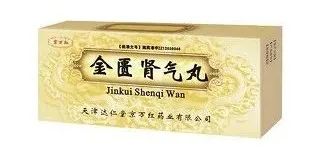
In such cases, Jin Kui Shen Qi Wan (金匮肾气丸) can be used to warm and tonify kidney Yang, promote Qi transformation, and is particularly effective for symptoms caused by kidney Yang and Qi deficiency. (Note: The above medications are for reference only and should not be used as a basis for diagnosis and treatment.)
